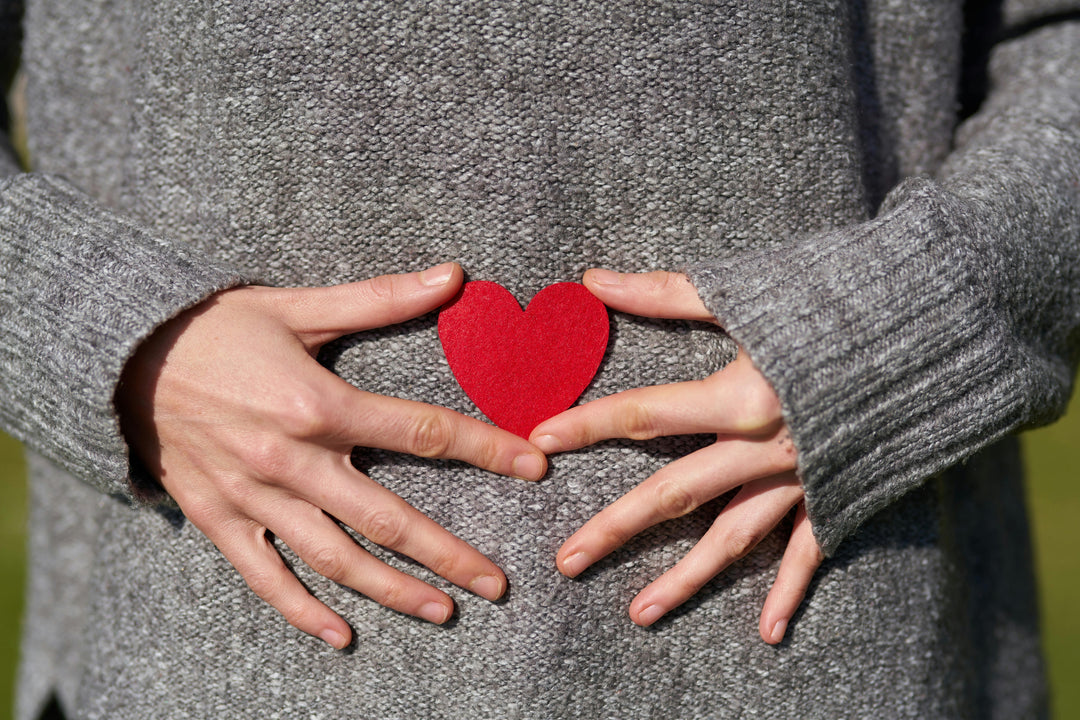Endometriosis Pain: You’re Not Alone (What To Do Next)

Are heavy periods and pelvic pain disrupting your daily life? You're not alone. Millions of women worldwide experience these symptoms, which could be signs of a condition called endometriosis.
In this blog, we aim to empower you with knowledge about endometriosis. We'll explore what it is, the common symptoms, diagnosis, and treatment options. We'll also discuss ways to manage the condition and connect you with valuable resources.
What is Endometriosis?
Endometriosis is a condition where tissue similar to the lining of the uterus (endometrium) grows outside the uterus, often on the ovaries, fallopian tubes, and pelvic lining. This misplaced tissue behaves like the uterine lining, thickening and breaking down each menstrual cycle. However, unlike the lining inside the uterus, which sheds during your period, the displaced tissue has no way to leave the body. This can cause inflammation, pain, and scar tissue to form.
Symptoms of Endometriosis
The symptoms of endometriosis can vary significantly from woman to woman. Some women experience no symptoms at all, while others experience severe pain and discomfort. Here are some of the most common symptoms:
Pelvic pain: This is the most common symptom, often described as a cramping, aching, or burning sensation in the lower abdomen or pelvis. This pain can worsen during your period, ovulation, or bowel movements.
Painful periods (dysmenorrhea): Women with endometriosis often experience excessive menstrual cramps that are much more severe than normal cramps. The pain can start several days before your period and last for several days afterwards.
Pain during or after sex: Pain during sex (dyspareunia) is another common symptom of endometriosis. The pain can be felt deep in the pelvis or vagina during intercourse or after orgasm.
Heavy bleeding: Some women with endometriosis experience heavy periods with excessive blood flow.
Other symptoms: Endometriosis can cause symptoms such as fatigue, bloating, diarrhoea, constipation, nausea, and vomiting.
It's important to note that not everyone with these symptoms has endometriosis. If you're experiencing any of these symptoms, especially if they're severe or interfering with your daily life, it is important to seek medical advice for proper diagnosis and treatment.
What Causes Endometriosis?
The exact cause of endometriosis is unknown, but several theories exist.
Retrograde menstruation: This theory suggests that menstrual blood flows back through the fallopian tubes and into the pelvic cavity instead of exiting the body. Endometrial cells in the blood can then implant and grow on the pelvic organs.
Embryonic cell changes: Hormones might transform embryonic cells during puberty into endometrial-like growths outside the uterus.
Surgical scar implantation: Endometrial cells may attach to scar tissue from pelvic surgery.
Diagnosis of Endometriosis
Diagnosing endometriosis can be challenging because symptoms can vary widely. There's no single test to diagnose it definitively. Often, a doctor will combine a physical exam with your medical history and potentially imaging tests like ultrasound, MRI, or laparoscopy to arrive at a diagnosis.
Treatment Options for Endometriosis
There's no cure for endometriosis, but treatments aim to manage pain, control hormone levels, and prevent the growth and spread of endometrial tissue. Here's an overview of some common treatment options:
Hormonal therapy: Birth control pills, progestin-only therapy, or medications that suppress ovulation can reduce endometrial tissue growth and lessen pain.
Pain management: Over-the-counter pain relievers, prescription pain medication, and heat therapy can help manage endometriosis pain.
Surgery: Laparoscopy is a minimally invasive surgical procedure often used to diagnose and treat endometriosis. This surgery can remove or destroy endometrial implants.
The best treatment for you will depend on the severity of your symptoms, your desire for pregnancy, and other factors. Discuss all options with your doctor to create a personalised treatment plan.
Living with Endometriosis
Living with endometriosis can be challenging, but it's important to remember that you're not alone. There are many things you can do to manage your symptoms and live a fulfilling life. Here are some tips:
Diet: There's no specific endometriosis diet, but some women find that certain dietary changes can help alleviate symptoms. Consider reducing inflammatory foods like red meat, processed foods, and refined sugar.
Exercise: Regular exercise can improve pain management and overall well-being.
Stress management: Stress can worsen endometriosis symptoms. Relaxation techniques like yoga, meditation, and deep breathing can be helpful.
Complementary therapies: Some women find relief with therapies like acupuncture, massage therapy, and heating pads. While research is ongoing, these therapies may offer some benefits for pain management.
Self-care: Make self-care a priority. Get enough sleep, prioritise relaxation, and find healthy ways to manage stress.
Emotional wellbeing: Endometriosis can take a toll on your emotional well-being. Don't hesitate to seek emotional support through therapy or support groups.
Can CBD Help with Endometriosis Pain Management?
Some women with endometriosis explore alternative therapies like CBD for pain management. CBD is a natural compound found in the hemp plant that interacts with the body's endocannabinoid system, which plays a role in pain regulation.
Early research suggests that CBD might offer some benefits for chronic pain management. However, more research is needed to determine its effectiveness specifically for endometriosis pain. It's important to consult with your doctor before using CBD if you are currently on other medications and ensure it's a safe option for you.
Frequently Asked Questions on Endometriosis
Can endometriosis cause infertility?
Endometriosis can sometimes lead to infertility, but not always. If you're concerned about fertility, discuss this with your doctor. There are treatment options available to help improve your chances of getting pregnant.
Is endometriosis hereditary?
Endometriosis may have a hereditary component, as women with a family history of the condition are at increased risk.
Does endometriosis increase cancer risk?
While endometriosis is not a form of cancer, it can slightly increase the risk of certain types of cancer, such as ovarian cancer.
Does Endometriosis cause bloating?
Yes - endometriosis can cause pelvic inflammation and swelling, leading to bloating.
Is there a link between Endometriosis and PCOS?
PCOS and endometriosis have distinct causes and treatments. Despite sharing some symptoms, they are not the same.
What are the long-term effects of endometriosis?
Severe pain, fatigue, depression, anxiety, and infertility can decrease the quality of life for those with endometriosis, making it difficult to attend work or school.
Resources and Support for Endometriosis
There are many resources available to help you on your journey with endometriosis:
Endometriosis UK- This organisation offers information and support for women with endometriosis in the UK, including resources and support groups.
Wellbeing of Women - The only UK charity dedicated to funding research, education and advocacy across all of women's reproductive and gynaecological health
Endometriosis.org - Global platform providing current information and news about endometriosis.
Connecting with others who understand can be incredibly helpful. Here are some ways to connect:
Online forums: Many online forums exist for women with endometriosis to connect, share experiences, and offer support to one another.
Support groups: Joining a local endometriosis support group allows you to connect with others in your area facing similar challenges.
Endometriosis can be a complex condition, but with knowledge and the right support system, you can manage your symptoms and live a fulfilling life. Remember, you're not alone. By taking an active role in your healthcare and exploring the resources available, you can empower yourself to manage your endometriosis journey.


